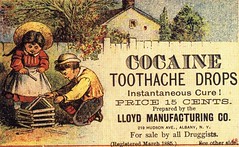Sentencing Commission Sends Crack Cocaine Penalty Report to Congress

I haven't been excited about the U.S. Sentencing Commission's long awaited report urging a slight reduction in crack cocaine penalties, because the reduction is just that: slight.
The report was forwarded to Congress today. You can read it here.
From a policy perspective, as the ACLU says, it's a good first step, but that's all it is.
But 2007 marks the fourth time in 20 years that the commission has issued such a report, and Congress has yet to address the problem. Years of medical and legal research have shown no appreciable difference between crack and powder cocaine, and no justification for allowing the vast sentencing gap between them to stand. We urge Congress to put aside politics and act now to fix this discriminatory federal drug sentencing policy."
From the practical standpoint of my clients and everyone else's clients doing double-digit sentences, it only takes a year or two off.
More...
| < Calif. Proposes New Execution Procedures | As Someone Who Lived Through 9/11 . . . > |



